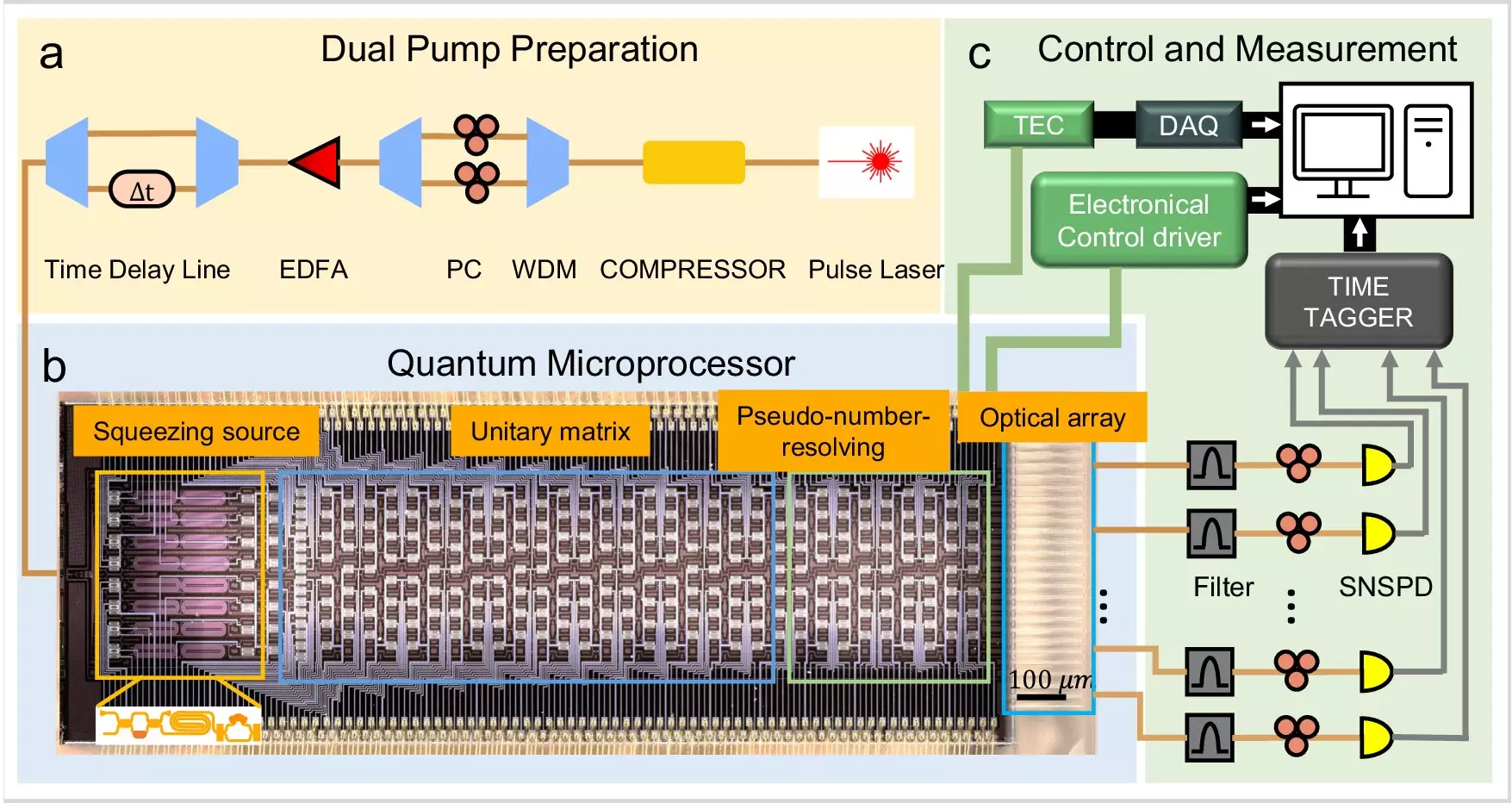Quantum simulation has revolutionized the way scientists study complex systems across various fields, including finance, cybersecurity, pharmaceuticals, AI, and machine learning. One of the key areas where quantum simulation has made significant progress is in molecular spectroscopy, particularly in understanding molecular properties through the exploration of vibronic spectra.
Molecular vibronic spectra have long been a computationally challenging problem that traditional supercomputers struggle to efficiently solve. The accuracy required to capture quantum effects like superposition and entanglement makes it even more difficult to model classically. This limitation has restricted researchers to simple molecule structures, leading to low accuracy and inherent noise in their simulations.
Recently, a team of engineering researchers at The Hong Kong Polytechnic University (PolyU) achieved a significant milestone in quantum technology by developing a quantum microprocessor chip for molecular spectroscopy simulation. This breakthrough allows for the simulation of actual large-structured and complex molecules, a feat that was previously considered impossible.
Led by Professor Liu Ai-Qun and Dr. Zhu Hui Hui, the research team successfully demonstrated a 16-qubit quantum microprocessor chip integrated into a single chip. By employing a linear photonic network and squeezed vacuum quantum light sources, the team was able to simulate molecular vibronic spectra with high accuracy and efficiency. The development of a complete system, including hardware integration and software development, paves the way for further quantum computational applications beyond the capabilities of classical computers.
The development of the quantum microprocessor chip opens up new possibilities for solving complex quantum chemistry problems, such as simulating large protein structures and optimizing molecular reactions. The ability to achieve quantum speed-ups in relevant quantum chemistry applications holds great promise for future scientific advancements.
Quantum technologies play a crucial role in scientific fields like material science, chemistry, and condensed matter physics. The quantum microprocessor chip offers a promising alternative for quantum information processing, with potential applications in molecular docking, quantum machine learning, and graph classification.
Professor Liu emphasized the real-world impact of quantum simulation technologies and outlined plans to scale up the quantum microprocessor for more intricate applications. The team’s success in tackling molecular spectroscope simulation represents a significant advancement in quantum technology and signals a new era of possibilities for quantum computing applications.
The breakthrough in molecular spectroscopy through quantum simulation represents a crucial milestone in the field of quantum technology. With the development of the quantum microprocessor chip, researchers are now poised to explore new frontiers in quantum chemistry and beyond, unlocking the potential for groundbreaking scientific discoveries and technological advancements.


Leave a Reply